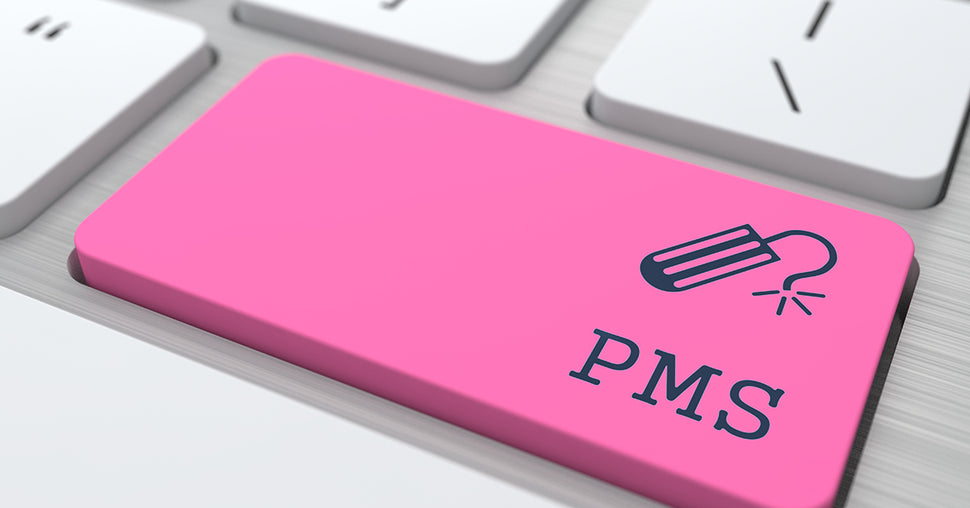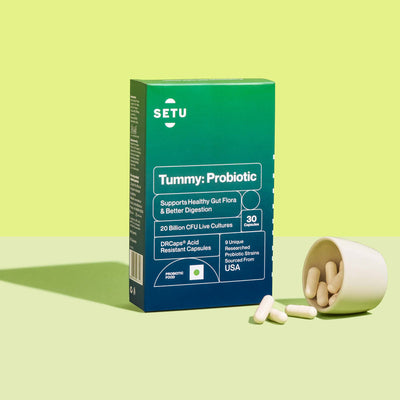Deal With PMS Like A Pro With These Nutrients
01 Mar 2020
Premenstrual syndrome, often referred to as PMS, is a condition that affects women’s physical, psychological and emotional health. It is so common for women that they consider it a normal part of getting their periods. Many women show symptoms of PMS a week or two before their monthly cycle begins. These symptoms include physical and emotional changes. Emotional changes include moodiness, feeling extremely grumpy or unhappy. Physical changes appear as abdominal bloating, breast tenderness and headaches.
Keeping PMS in control or dealing with it isn’t a task, but a lot of women think there isn’t much they can do about it. Simple things such as maintaining a healthy diet and some exercise can help you deal with your PMS better.
Understanding PMS
Premenstrual syndrome (PMS) occurs a few days before the onset of the monthly cycle, generally five to 11 days before the periods. The causes of PMS are unknown. However, studies suggest that an increase in sex hormones – estrogen and progesterone can cause mood swings, anxiety, and irritability. Furthermore, changes in serotonin levels affect mood, emotions, and thoughts.

PMS is a very common condition. Its symptoms affect more than 90 percent of menstruating women . Some of the emotional symptoms include tension, anxiety, depression, mood swings, anger issues, food cravings, social withdrawal, poor concentration, and change in libido. Whereas physical symptoms include joint or muscle pain, headache, fatigue, abdominal bloating, acne, constipation or diarrhea, and breast tenderness.
Thirty to 45 minutes of exercise for four to five days per week and these dietary shifts can help you deal with your PMS better .
1. Have More Complex Carbs
Changes in your insulin levels are a common cause of bad moods and intense cravings. Complex carbohydrates are essential nutrients that enter your bloodstream slowly and help curb the cravings and bad mood .
Whole grains, beans, barley, brown rice, corn, potatoes, and quinoa. Legumes, such as black beans, chickpeas, lentils, and others are highly rich in complex carbs.

2. Include More Calcium and Vitamin D
Various researches and studies suggest that the intake of calcium and vitamin D can help reduce the severity of PMS. Calcium and vitamin D work together to pacify PMS. Calcium eases mood swings, headaches and bloating, while vitamin D helps the body absorb calcium. Women need nearly 1000-1200 mg of calcium daily .
Milk, yogurt, cheese, almond, poppy seeds, sesame seeds, celery seeds, and chia seeds are a few food items rich in calcium while, cod liver oil, egg yolks, mushrooms, and seafood have an abundance of vitamin D. Apart from these food items, natural sunlight is a good and free source of vitamin D.
3. Eat Iron-Rich Food
You lose a significant amount of iron when you’re menstruating. Low iron can lead to anemia. Therefore, it is very important to include iron-rich foods in your diet, especially during the PMS phase and when you’re menstruating.
Meats like beef, lamb, and seafood are good sources of iron. Vegans and vegetarians could include spinach, pumpkin seeds, potatoes, oats, broccoli, coconut milk and tofu in their diet.

4. Drink Plenty Of Water
Drinking a sufficient amount of can help reduce bloating, and aid in digestion along with serving other health benefits. Women in their periods should drink around nine glasses (a little over 2 liters) of water .
You can also flavor your water with lemons, basil, mint, etc. to make it delicious to drink all day.
5. Reduce Salt
Sodium is the major component found in salt, and it causes the body to retain fluids. If you face problems such as swollen hands and feet, bloating and tender breasts, you are ought to reduce salt intake .
Avoid packaged and processed foods as the salt content in them cannot be measured and controlled. Try homemade food with minimal salt content.
6. Cut Down Alcohol and Caffeine
We are all used to waking up to a cup of coffee or tea and having a glass of wine after a long day. It might give a sense of relief, but both, alcohol and caffeine can make your PMS worse. Caffeine and alcohol can disrupt your sleep and it’s found that caffeine can aggravate your PMS symptoms.

Skin: Renew - Glutathione
- ₹1,594
- ₹1,594
-
₹2,200 -
You Save:
₹606 (27%)
Categories
- Choosing a selection results in a full page refresh.
- Press the space key then arrow keys to make a selection.
this is the sidecart













